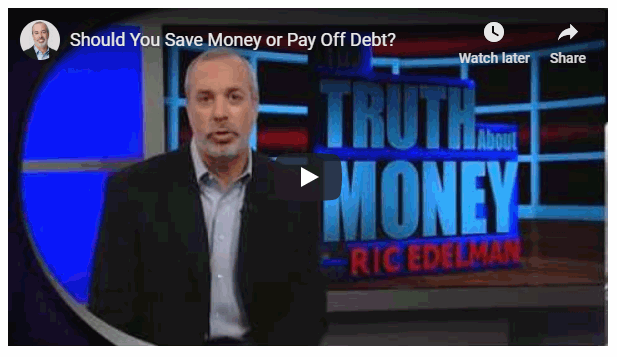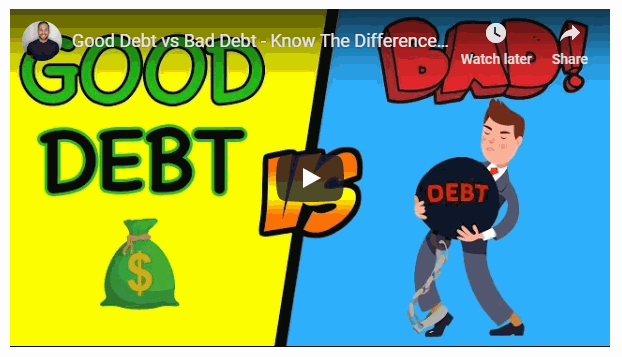Saving for the future or paying off your debt. Both are lofty goals that most of us have tried., but when it comes to determining which is more important, the answer is rarely cut and dry. When confronted with student loan debt and credit card bills, sometimes it seems the best way to get out of debt is to just pay it off. The issue is interest rates. Generally, one’s interest rates are high while the other is relatively low, and if you’re not saving, you may run into trouble before you’re debt-free.
Determining which route to go can be overwhelming, but once you understand the pros and cons of each scenario, it will be easier to decide what to tackle first or if you should work on both at the same time.
Cons of Saving
If you are saving instead of paying off debt, you’ll end up paying more interest on the debt in the long run, which may actually end up canceling out the savings you put so much effort into. If, you are constantly paying more interest to the bank than they are paying you you are actually losing money. By paying off the debt, in the long run, you will have more to save and your savings will actually grow faster.
Pros of Saving
If your debts are low-interest like student loans, then it might be better to put more money into your savings until you have at least enough to live for six months stashed away. Then, you can take the extra money and start applying it to your student debt.
Cons of Paying Off Debt
The feeling you have when you’re debt-free is like no other. However, if you focus on paying off debt without saving, then the only thing you’ll have to rely on are your credit cards. Sooner or later some unexpected expense will come up: a medical bill, car repairs, or simply not having enough money to cover your rent. If you rely too heavily on credit cards to get you out of a jam, you’ll end up right back in debt.
Pros of Paying Off Debt
There are times when you should put your debt ahead of your savings. For example, by paying high-interest rates credit cards, you’ll reduce the total amount owed in interest the following month. If you find yourself buried in debt with no feasible way out, you might want to reach out to a company that specializes in debt settlement services. They can help you create a financial plan that lets you pay off debt without having to worry about creditors.
In a perfect world, being able to pay down your debts and save at the same time is the best course of action. If you’re able to do both, create a budget and stick to it. Make sure that you tackle the debt with the highest interest rates first while saving for your future. If you can’t focus on both, look at your financials and decide where the money you have will best serve you. In the end, it comes down to what you can afford and how long you want to continue working.
You might also like:





